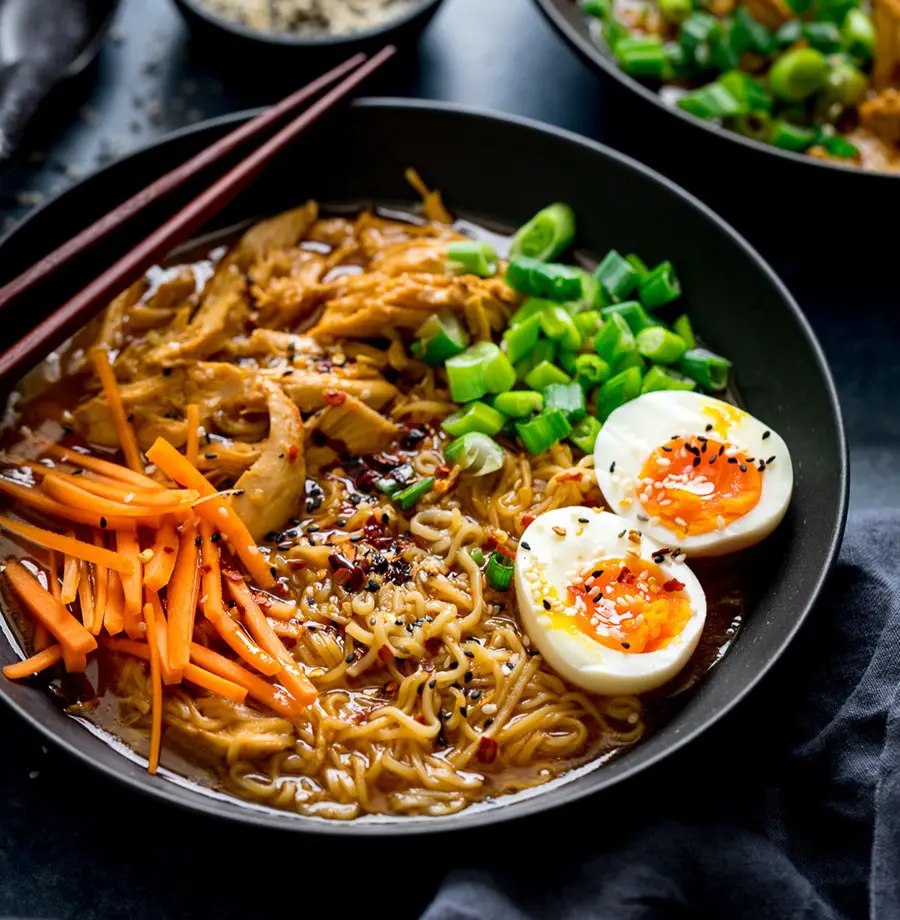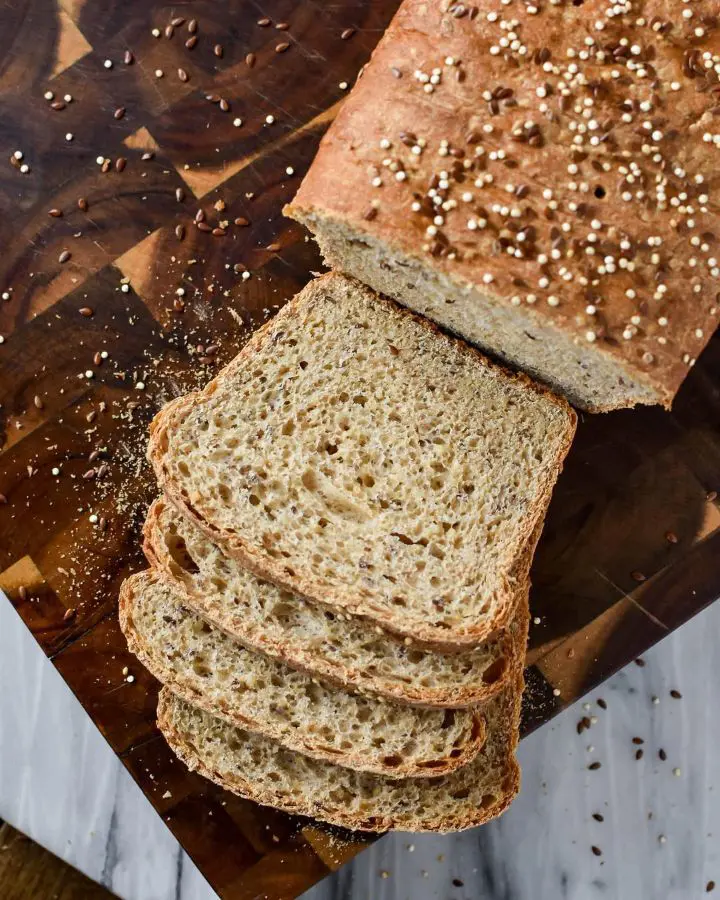16 Teas For Period Cramps: Herbal Remedies To Soothe Your Cycle
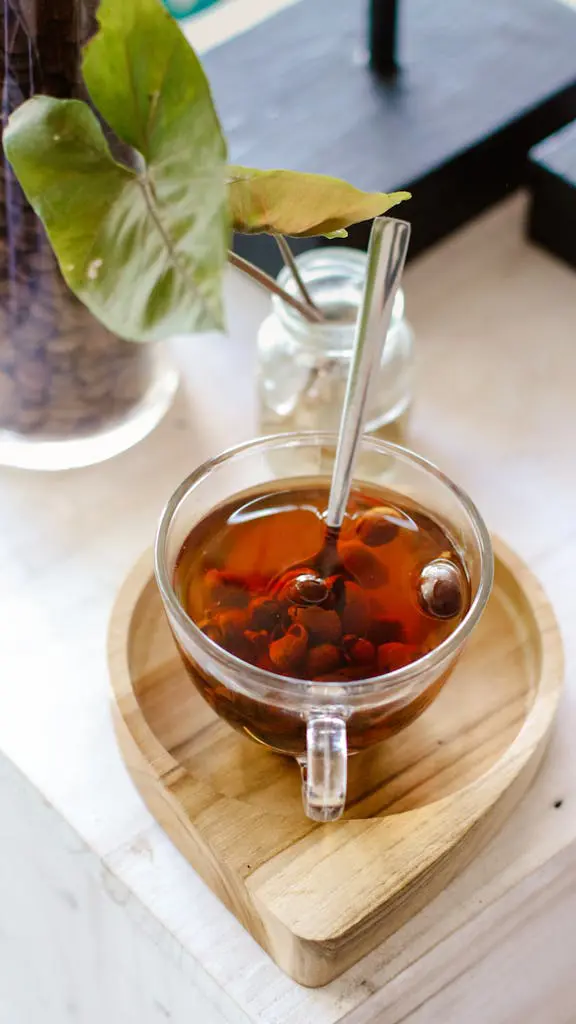
This post may contain affiliate links. If you make a purchase through links on our site, we may earn a commission.
Menstrual cramps can be a challenging part of the monthly cycle, often causing discomfort and disrupting daily activities. Warm beverages, particularly herbal teas, are drinks traditionally known for their potential easing of menstrual discomfort.
Varieties like peppermint and ginger tea are noted for their bloating-reducing and pain-easing properties. This article presents 16 teas for period cramps that will ease your pain naturally and soothingly.
Is Tea Good For Period Cramps?
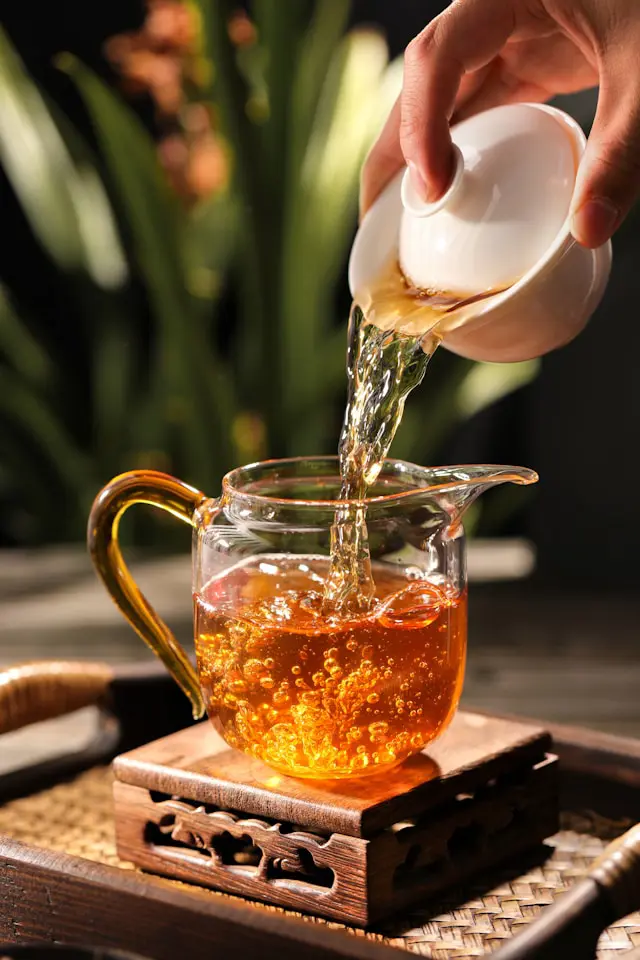
Drinking tea can help with reducing pain related to period cramps. Different types of tea contain elements that can potentially alleviate pains related to menstrual cycles. For instance, chamomile, ginger, and peppermint-based teas contain anti-inflammatory and antispasmodic compounds that may ease pain and make the uterine muscles tender.
Green tea contains antioxidants that might act to combat inflammation associated with menstrual cramping. This may be helped further by the warmth of the tea itself soothing the abdomen.
Some teas, particularly those containing caffeine, may also help alleviate fatigue often experienced during menstruation. However, one should remember that tea has some positive effects on the human body and can be consumed as a natural remedy while its efficiency depends on the individual.
Tea For Periods Cramps: 16 Effective Remedies
Home remedies for menstrual cramps mainly constitute analgesic, anti-inflammatory, antispasmodic, and soothing teas. And one may ask, well, does tea help with period cramps? Well, the answer is yes!
Some studies support the use of certain kinds of tea for menstrual cramps and the associated bloating and discomfort of your period. Here we have listed 16 such teas that will help you get relief from your period cramps.
1. Ginger Tea
Ginger tea has gained increasing popularity as a natural solution for different digestive issues, including nausea and bloating. But it does not stop there; the benefits also subtly reach the cause of menstrual discomfort.
Ginger is also an anti-inflammatory and analgesic; hence, it is a good option for women to reduce menstrual pain and bloatedness. While studies involving this period cramps tea are limited, the results from studies about other forms of ginger suggest:
What all this research into the subject came to was that women who took between 750-2,000 milligrams of ginger powder on the first three to four days of their cycle had less pain when compared to those who had taken placebos. This therefore could suggest that ginger has a great impact on period pain.
2. Chamomile Tea
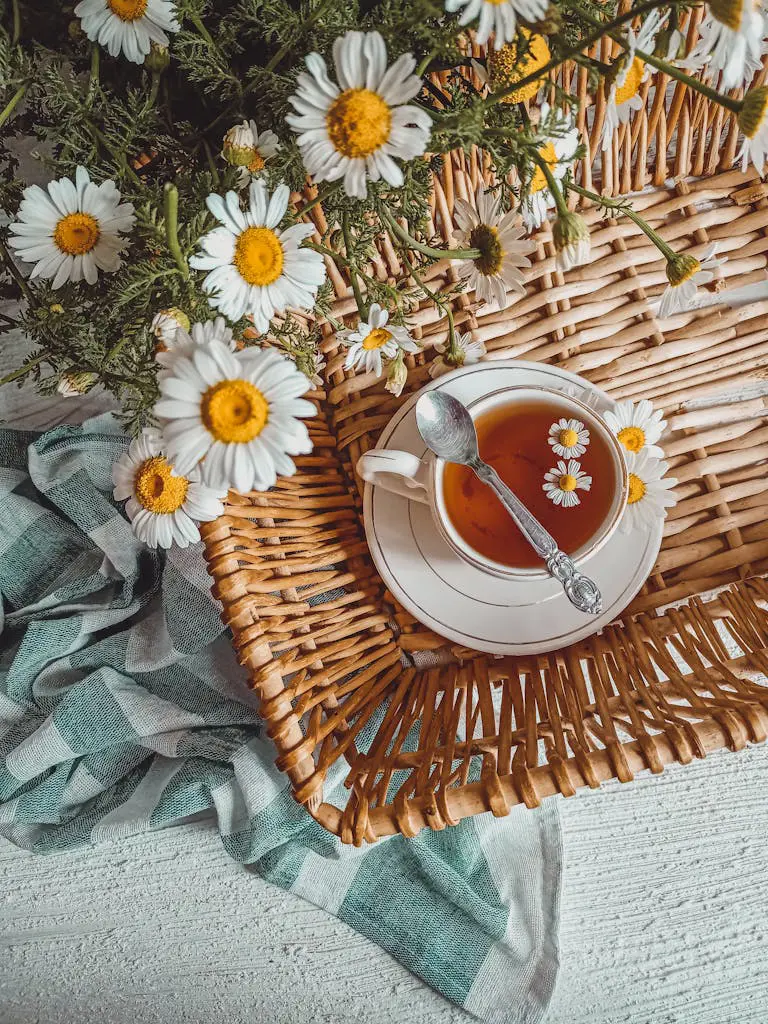
Chamomile tea has been famous for many years as a soother, and this includes sleep. This mild herbal tea contributes more than good sleep; it embraces benefits that extend into different areas of women's health, even menstrual discomfort.
It is said that a compound called apigenin is responsible for making chamomile work its magic. It contains a natural chemical that works as a modulator in the activity of the brain, helping to induce relaxation and, therefore, sleep with ease by calming one down.
The benefits of chamomile tea extend beyond inducing sleep. The review of the set of research studies has indicated that chamomile tea is effective for several symptoms associated with PMS, which includes menstrual cramps, and thus versatile for women in case of different menstrual discomforts.
3. Cinnamon Tea
Cinnamon is one of the most consumed spices with its sweet, warm flavor, and perhaps much more than just a helping hand in cooking. New research indicates it might also be used to help cope with several menstrual symptoms and can turn cinnamon tea into a soothing friend for women during their monthly courses.
Anti-inflammatory action is one of the important properties of cinnamon. This could contribute to a decrease in bloating, which is among the most common and irritating symptoms among women just before and during the menstrual cycle.
It may help with that annoying part of the menstrual cycle, by possibly reducing the amount of inflammation within the body. Besides its anti-bloating effect, cinnamon also seems to help in easing other menstrual pains.
A study saw researchers investigate the effects of cinnamon on several menstrual symptoms. The participants, upon receiving 420 mg of powder three times daily for a month, showed lesser period pain and lesser menstrual bleeding, with reduced nausea compared to the placebo action.
4. Peppermint Tea

Peppermint tea, made from its perfumed leaves, is refreshing and might help people with menstrual pains. The active principle behind peppermint's distinctive properties is menthol, a chemical compound well-acknowledged for its characteristic cooling sensation and numerous health advantages.
It contains menthol in large part, for which medical attention has been caught regarding its potential therapeutic benefits about problems in the gastrointestinal tract. Because of this, peppermint essential oil has become highly popular as both a digestive aid and a reliever of digestive discomfort-particularly among people who suffer from IBS.
This helps explain why it works: menthol decreases spasms of smooth muscles, which can help eliminate painful stomach cramps. While some scientific studies have not been conducted about peppermint and menstrual cramps, there is anecdotal evidence that may suggest it helps.
5. Thyme Tea
Thyme is an herb that, besides being extremely used in cooking, is gaining its popularity due to its possible health benefits other than culinary purposes. Commonly known for its earthy flavor, this aromatic plant is prepared into a refreshing tea, which can be commonly found and consumed across the globe.
In recent studies, it has been discovered that this delicious-tasting thyme tea may offer more than what our taste buds perceive; in fact, it may serve as a treatment for menstrual distress. A randomized, double-blind, controlled trial conducted in Ethiopia utilized 252 teenage females to examine the effects of thyme tea on menstrual pain.
It was astonishing that the menstrual pain of the participants was reduced by as high as 63.2% after thyme tea consumption. Meaning this herbal tea for period cramps could be an effective herbal remedy for menstrual colic.
6. Green Tea
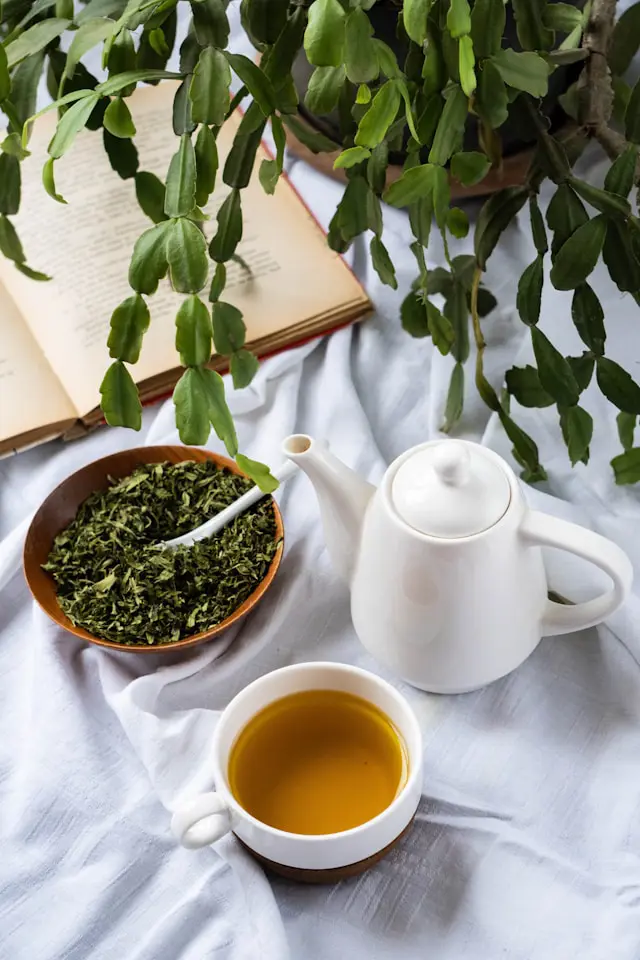
Green tea, derived from the Camellia sinensis plant, is renowned for its numerous health benefits. When it comes to menstrual discomfort, green tea offers a unique combination of compounds that may provide relief through various mechanisms.
- Epigallocatechin: anti-inflammatory, antispasmodic, antioxidant
- L-theanine: induces relaxation, and might improve pain tolerance.
Some key benefits of green tea are as follows:
- May help ease menstrual cramps
- May reduce pain associated with endometriosis
- Fosters general relaxation
A study reported that women who drink green tea experience lesser period pain compared to those who don't drink tea at all. Green tea is generally healthy and hence also gains popularity in menstrual comfort, though studies are incomplete.
7. Oolong Tea
Oolong tea, traditionally produced from the Camellia sinensis plant, has an exclusive taste and may contribute to menstrual comfort. In some way, oolong tea is thought to decrease menstrual colic, though less effectively compared with green tea.
This makes oolong a good alternative for those whose tastes are beyond the flavor of green tea but are still interested in taking advantage of its benefits. This would mean that oolong generally contains caffeine, in the range of 37 to 55 mg per 8-oz cup, placing it between green and black tea.
Naturally, the amount of caffeine can vary depending on the specific type of oolong and brewing method. While this needs further research to confirm its effects on menstrual symptoms, the potential benefits with a pleasant taste make oolong tea worthy of consideration for those looking for natural remedies for period discomfort.
8. Fennel Tea
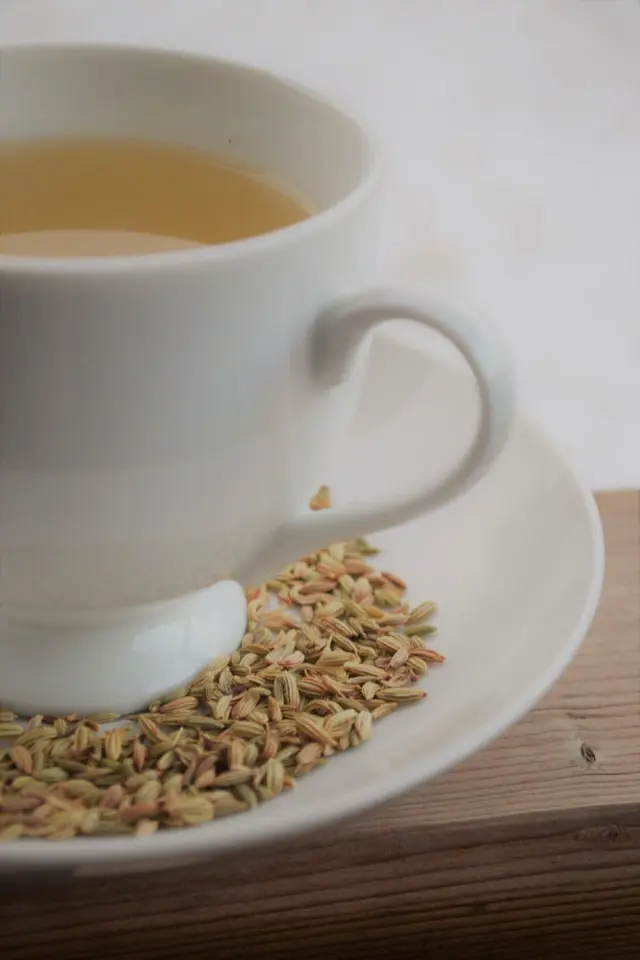
Fennel is an herb praised for its mild licorice-like flavor. It is a great source of positive chemicals, mainly Vitamin C and Quercetin, which can help reduce the inflammatory effects within the body.
While research is still being done into using fennel tea for menstrual cramps, one earlier, small study showed some pretty impressive results. Participants who took 30 mg of fennel extract four times daily during the first three days of their periods reported much less pain compared to those who took a placebo.
A 2020 review had two key findings:
- Fennel seemed to have pain-relieving benefits similar to pain medications.
- Fennel was more effective in reducing period pain compared to a placebo.
These findings suggest that fennel tea can be one of the natural and effective options to treat menstrual discomfort. However, further studies will be needed for the complete explanation of the effects of this herbal tea on period cramps.
9. Basil Tea
Basil tea seems to be an effective herbal remedy for menstrual pains because it is rich in useful compounds. First of all, basil tea contains essential oils such as geraniol, eugenol, and linalol oil at its base, which contribute to its therapeutic effect.
Besides that, basil tea is a good source of saponins and flavonoids. Especially appreciated are the antispasmodic properties of these components-that is, their capability to relax the muscle tone and relieve spasms.
This may further exert a relaxing effect on the uterine muscles, hence making basil tea a possibly effective option to reduce menstrual cramps. Basil tea may ease the painful contractions in the uterus and hence soothe the pain and discomfort throughout the period.
10. Red Raspberry Leaf Tea
Red raspberry leaf tea is made from raspberry plant leaves, not the fruit. It tastes mild, similar to black tea, without a raspberry flavor. This tea is popular in women's health for its reported ability to stimulate uterine contractions.
Some believe it may strengthen the uterus, but this could be a double-edged sword. Since uterine contractions cause menstrual cramps, red raspberry leaf tea might worsen cramps if it does stimulate the uterus.
This potential effect highlights the importance of caution when using herbal remedies for menstrual pain. More research is needed to fully understand how this tea affects menstrual symptoms and uterine health. It's always best to consult a healthcare provider before trying new remedies for menstrual discomfort.
11. Lavender Tea
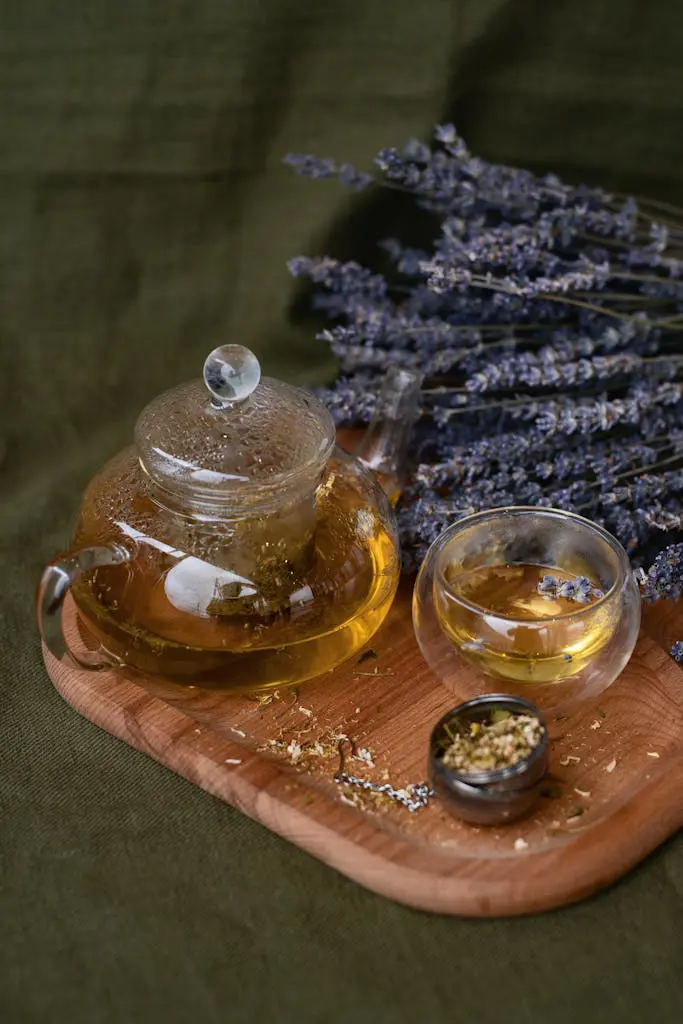
Lavender is widely known for promoting relaxation and sleep. While not considered a true tea, the infusion of lavender might be beneficial for your menstrual cycle in the following ways:
- It might reduce stress and anxiety symptoms generally increasing menstrual cramps.
- Drinking lavender tea may thus help in keeping away from any stress and discomfort during the period.
The soothing properties of lavender may indirectly ease menstrual discomforts by helping you to relax. While you are resting, your body automatically has fewer tensions, which could reduce the perceived severity of pain. Lavender tea can be made by steeping dried flowers of lavender in hot water for a few minutes. Lavender tea is available in many stores and comes in pre-packaged tea bags.
12. Turmeric Tea
Curcumin is an active ingredient found in the root turmeric and has been studied for lowering symptoms of inflammatory conditions like IBS, arthritis, and psoriasis. A review of several studies outlines that curcumin may help alleviate the associated inflammation and mood changes with menstruation.
While supplements offer more concentrated doses of curcumin, the tea itself is relatively inexpensive and comforting relief against symptoms.
Although the amount of curcumin could not be as great compared to what one would take from supplements, it would arguably still have some sort of anti-inflammatory effect. Besides, sipping on warm turmeric tea can soothe you during your period.
13. Oregano Tea
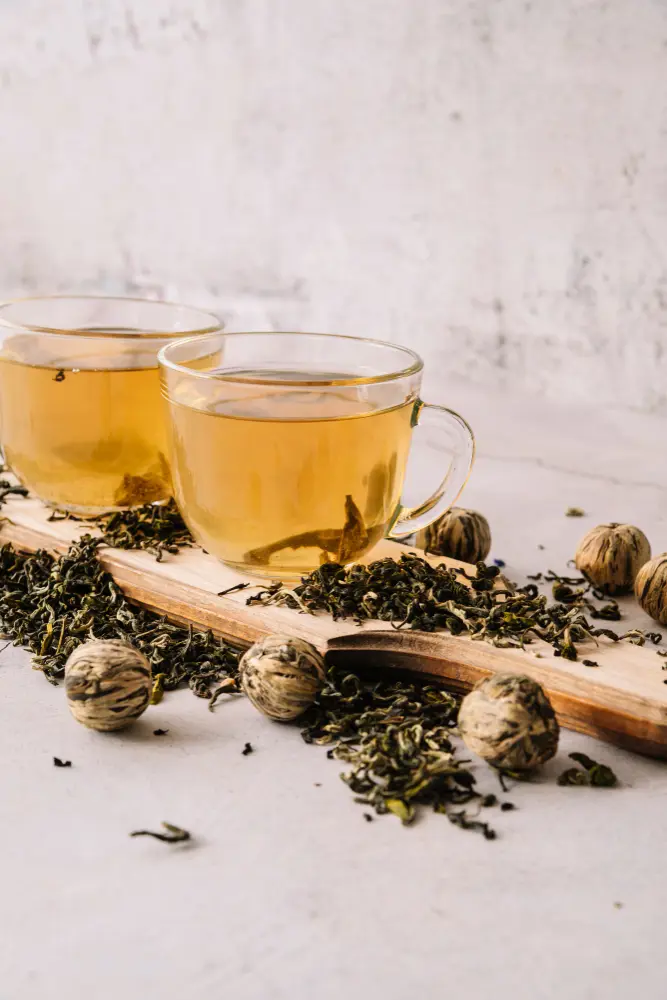
Basil tea is an herbal infusion that can be helpful in cases of menstrual colic, due to its useful compounds such as the following:
- Aromatic oils: geraniol, eugenol, linalol oil
- Saponins
- Flavonoids
These ingredients, saponin, and flavonoid in particular, represent antispasmodic action. In other words, they would be able to facilitate the relaxation of uterine muscles by simply reducing spasms that might help in menstrual cramps.
Basil tea may lighten the period pains through its antispasmodic action, which alleviates such pains by the tension of the uterine contractions. In this case, basil tea is apt to reduce cramping intensity and frequency by relaxing the uterine muscles.
14. Chasteberry Tea
Chasteberry tea is an herbal infusion brewed from the leaves and fruits of plants. This herbal concoction is rich in useful bioactive phytochemicals: flavonoids, essential oils, iridoids, and glycosides.
It is these ingredients that give chaste berry antispasmodic properties, which would release menstrual cramps by relaxing the uterine muscles. Additionally, the chaste berry is believed to help in balancing female hormones, hence giving further relief to cramping.
Beyond relieving cramps, the tea holds promise for normalizing irregular menstrual cycles that are either too short or too long. It could even prove useful for those experiencing PCOS.
This might make chaste berry tea one of the more 'interesting' natural methods to deal with a variety of aches and pains associated with menstruation: it acts both on the level of the muscles themselves and through its effect on hormonal balance.
15. Dandelion Tea
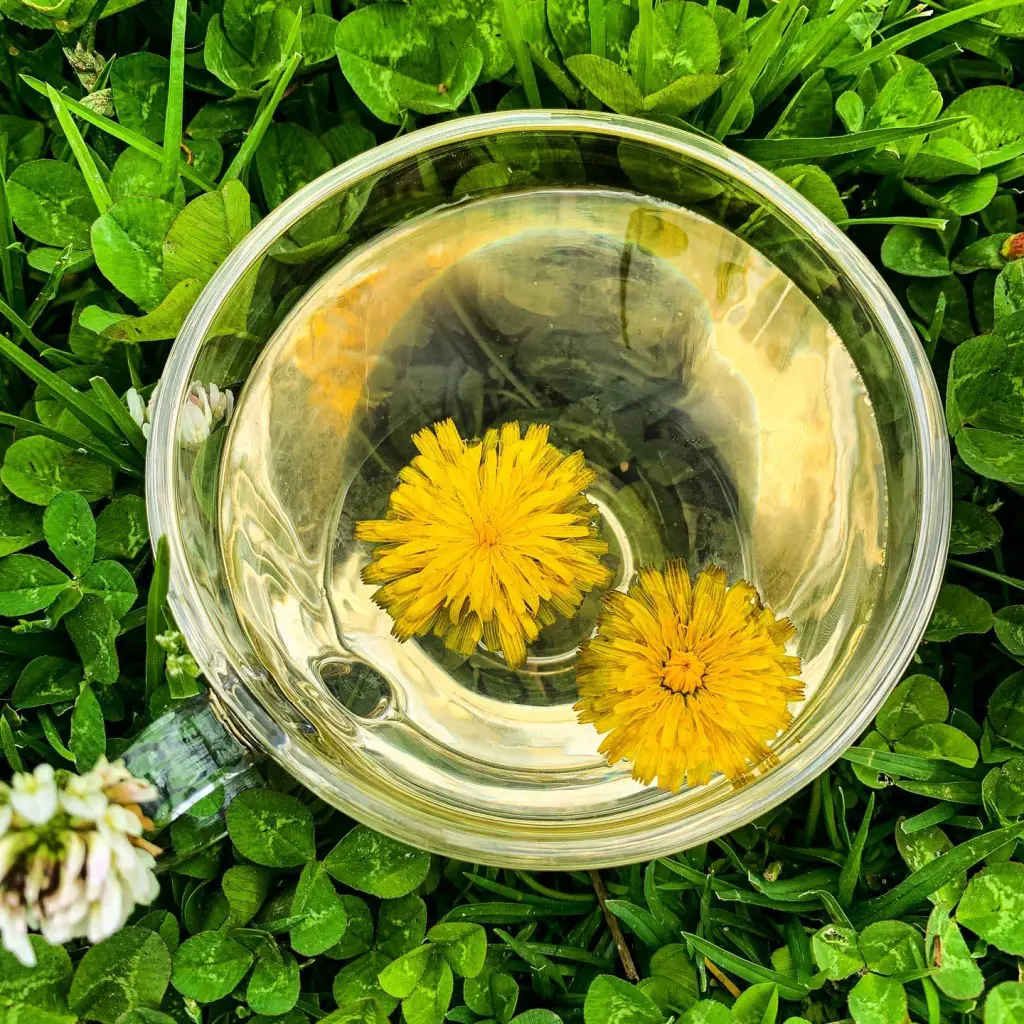
Dandelion tea is a type of herbal tea brewed from a plant called the common dandelion. It has gained popularity for its efficiency in giving relief during menstrual symptoms.
This kind of herbal tea is particularly known for detoxification properties that will be very helpful for women in their menstrual periods. Perhaps it helps regulate the hormonal changes and relieves the different kinds of PMS symptoms, such as cramps.
16. Marigold Tea
Marigold tea is used as a natural remedy for menstrual pains and the regularization of the cycle, especially if taken with fennel and nutmeg. This herbal tea is documented to possess various properties useful in soothing these difficult times.
The antispasmodic action of this tea might reduce cramping while its analgesic action helps in reducing pain. Besides, anti-inflammatory marigold tea can be used to reduce swelling and hence discomfort. This blend is calming and contributes to the feeling of relief during menstruation.
Recent posts
Nutrition
Nutrition
Liquorice Root: Benefits And Uses
You can spell it liquorice or licorice; this herb or root has been in use for centuries in most medicinal applications, as a natural sweetener and to enhance flavors. Regarding its origins, it comes from the root of the "Glycyrrhiza galbre" plant and...
Nutrition
Is Ramen Healthy? Here's What Dietician Says
Ramen is a traditional dish from Japan that in the recent era has become a global phenomenon. This beloved and comforting soupy dish however has been questioned, when it comes to its nutrition. Best for those looking for a quick (instant), affo...
Nutrition
Is Wheat Bread Healthy? An Expert Picks
Wheat bread has been proudly celebrated as a dietary staple in countless homes for as long as people can remember. It has earned a reputation as a healthier alternative to white or any other processed bread, that no one can deny. Because of its evide...
Nutrition
Is Sausages Healthy? Nutrition And Health Benefits
Sausages are tasty in an addictive way, making them one of the most popular foods worldwide. You may have enjoyed this convenient food often, whether on a bun with mustard or grilled on a barbecue, the simple preparation methods are what makes its co...
Nutrition
Ice Cream Benefits: Nutrition, Potential Risks And Best Choices
Not gonna lie, ice cream is often taken as a guilty pleasure treat, a delightful treat that takes you to cloud nine but is frequently associated with negative health implications. Nonetheless, the happy news is when devoured mindfully, ice cream can ...
Nutrition
Is Sushi Healthy? Some Good and Bad Choices
Sushi is a wholesome meal and a beloved Japanese dish. The traditional sushi recipe is a simple combination of fresh fish, vegetables, and vinegared rice which is popular for its minimalistic preparation. As with any food, there are factors that dete...

